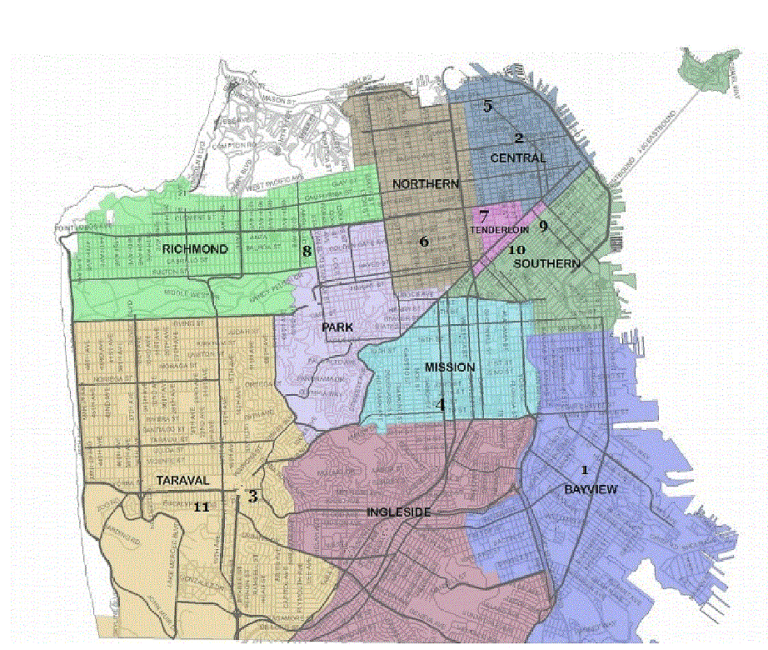Launched in 2012, Neighborhood Courts is an innovative model for keeping low-level justice involved individuals from entering the criminal justice system. The program is designed to resolve cases efficiently, create community-driven solutions to crime, reduce the congestion in our courts, and reduce recidivism.

Non-violent misdemeanor cases that would otherwise be prosecuted are diverted pre-charging by the SFDA into ten Neighborhood Courts across the City (one for each police district), where trained neighborhood volunteers hear the matters, speak with the participants (e.g. justice involved individuals under traditional prosecution) about the harm caused by their actions, and issue “directives” designed to repair the harm and address risk factors. Participation in Neighborhood Court is voluntary – but participants must be willing to take accountability for their actions. Once the participant completes their directives, the case is discharged. Cases that do not resolve in Neighborhood Court are returned to the SFDA for prosecution.
The Neighborhood Courts program is a partnership of the SFDA and two community-based organizations: the San Francisco Pretrial Diversion Project and Community Boards.
Neighborhood Courts was identified as a 2015 Innovation in Criminal Justice by the United States Department of Justice/Bureau of Justice Assistance, Association of Prosecuting Attorneys and Center for Court Innovation. The model has been replicated in Los Angeles and Yolo County California and has garnered interest from jurisdictions across the country.
Adjudicators are members of San Francisco’s diverse neighborhoods who volunteer to hear the cases. They have been trained in restorative justice and problem solving. They are NOT defense attorneys, prosecutors, or judges. They include residents, merchants, students, parents and retired community members.
During Neighborhood Courts sessions, adjudicators hear from the justice involved individual and the victim (in cases where there is a victim), and discuss the impact of the crime on the community.
Our community-based partners, San Francisco Pretrial Diversion and Community Boards, provide ongoing training and support to our adjudicators, helping them to infuse restorative principles into the sessions and to craft individualized directives in each case.
If you are interested in volunteering for Neighborhood Courts, click on this application and submit it today. If you have questions, call Jackson Gee at (628) 652-4258 or email him at Jackson.gee@sfgov.org.
by the US Department of Justice/Bureau of Justice and numerous other organizations in 2015
cases heard since Neighborhood Court was created
cases handled in 2018
of participants appeared
successfully resolved their case through Neighborhood Court
grants provided back to the community through the Neighborhood Justice Fund
community members have served as volunteer adjudicators
Adjudicators are members of San Francisco’s diverse neighborhoods who volunteer to hear the cases. They have been trained in restorative justice and problem solving. They are NOT defense attorneys, prosecutors, or judges. They include residents, merchants, students, parents and retired community members.
During Neighborhood Courts sessions, adjudicators hear from the justice involved individual and the victim (in cases where there is a victim), and discuss the impact of the crime on the community.
Our community-based partners, San Francisco Pretrial Diversion and Community Boards, provide ongoing training and support to our adjudicators, helping them to infuse restorative principles into the sessions and to craft individualized directives in each case.
If you are interested in volunteering for Neighborhood Courts, click on this application and submit it today. If you have questions, call Jackson Gee at (628) 652-4258 or email him at Jackson.gee@sfgov.org.